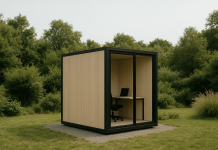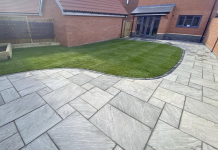Just like people, every plant is unique. For example, some thrive in shady, high-humidity environments, while others prefer sunny and dry conditions. As such, learning how to boost plant growth typically means researching your plant’s specific light and water needs.
That said, you can also help your plants flourish by practicing a handful of practical habits and implementing a few crucial changes. Read on to discover the best tips and tricks for boosting planting growth and helping your plants live their best lives.
Try fabric pots
Fabrics pots like the GeoPot may help your plants live longer and healthier lives. That’s because fabric pots are less restrictive than plastic or stoneware pots. These planters let soils breathe, helping to reduce excess moisture retention.
Altogether, these qualities make fabric pots one of the best ways to encourage healthy root growth. A plant with healthy roots is bound to develop gorgeous leaves and robust stems.
Resist overwatering
When you’re worried about the growth of your plants, adding a little water to the soil seems like the first thing to try. But not all plants respond well to moist soil conditions. Consequently, one of the best ways to boost plant growth is to resist overwatering.
To ensure your plants are enjoying precisely the right amount of water, be sure to research each plant’s moisture needs. You may also want to choose pots that allow you to water the roots directly, as doing so can reduce the chance of soil becoming moldy and mildewy.
Select low-maintenance plants
While some gardeners are prone to overwatering their plants and attempting to provide too much care, others are likely to forget about their plants for long periods. If you fall into the latter category, you may be able to boost plant growth by investing in low-maintenance houseplants.
Succulents, for example, need minimal amounts of water and tend to flourish when left alone for extended amounts of time. These moisture-retaining plants are also relatively tiny, ensuring that they don’t consume tons of living space.
No two gardeners are precisely alike, so be sure to choose plants that match your gardening
style. Doing so is a fantastic way to prevent plants from dying en masse.
Choose organic fertilizers
The type of soil you give your plants also impacts their growth. For that reason, you’ll want to consider each plant’s specific soil needs before transplanting them to a new pot or container.
For example, the best soil types for blueberries are rich in acidic substances like pine needles. But the best gardening soil for giant sunflowers is rich in nitrogen, an element that helps plants utilize energy resources.
If possible, ditch these store-bought fertilizer-rich potting soils and amend the earth using an organic alternative. Kitchen compost (free of citrus or meats), organic manure, and composted leaves are excellent natural fertilizers that can safely help your plants thrive.
Wrap up
Plants need light, water, and nutrient-rich soil to stay healthy and grow strong. If you’re struggling to help your plants prosper, try implementing the tips and tricks listed here.
















